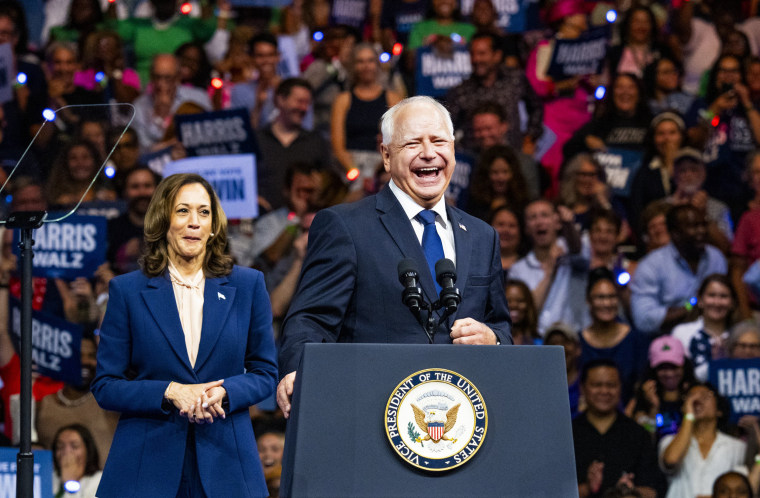Democrats Continue to Joke About False JD Vance Rumor After Years of Criticizing Trump for Spreading Misinformation

In a political landscape that thrives on both intrigue and satire, the recent antics surrounding JD Vance, the Republican senator from Ohio, have illuminated a curious dichotomy in American political discourse. For years, Democrats and progressive voices have been highly vocal in their censure of former President Donald Trump for his proclivity to disseminate unverified claims and outright falsehoods. Yet, in a striking turn of events, some within the Democratic camp have taken to levity when it comes to a false JD Vance rumor, raising questions about consistency and the broader implications of such behaviors in the realm of public discourse.
The Genesis of the Rumor
The rumor that became a source of mirth among certain Democrats originally emerged in a rather inauspicious manner. It was claimed, without credible evidence, that JD Vance, who rose to prominence with his memoir “Hillbilly Elegy,” had engaged in behavior that was widely considered outlandish and unbecoming of a public figure. Despite the lack of substantiation, the rumor quickly gained traction on social media, amplified by memes and tongue-in-cheek comments from various online communities.
This phenomenon is not isolated. In the digital age, where information travels at the speed of light and often lacks the friction of fact-checking, rumors and misinformation can spread rapidly. In this instance, the rumor about JD Vance seemed to capture the imagination of a segment of the public, offering a blend of political schadenfreude and entertainment.
A Closer Look at the Political Climate
The irony of this situation is palpable. The Democratic Party, and many of its adherents, have long prided themselves on a commitment to truth and evidence-based policy. The Trump presidency was marked by numerous instances of misinformation, which were often met with fierce rebuttals from Democrats and the broader liberal community. This has led to a perception of Democrats as the torchbearers of truth in an era of “fake news” and alternative facts.
However, the reaction to the false JD Vance rumor has exposed a potential inconsistency in this narrative. By engaging in jest at the expense of Vance based on an unsubstantiated claim, some Democrats have inadvertently mirrored the behavior they once criticized so vehemently in Trump and his followers. This raises important questions about the standards of discourse and the responsibilities of political figures and their supporters in the digital age.
The Role of Humor in Political Discourse
To understand the dynamics at play, it is essential to consider the role of humor in political discourse. Satire and comedy have long been tools for critiquing power and exposing hypocrisy. In many cases, humor can serve as a powerful means of conveying complex ideas and criticisms in a manner that is accessible and engaging to the public.
However, the use of humor, especially when based on misinformation, can also have unintended consequences. It can blur the lines between fact and fiction, making it more challenging for the public to discern the truth. This is particularly problematic in a political environment where trust in institutions and leaders is already strained.
By continuing to joke about the false JD Vance rumor, Democrats may be inadvertently contributing to a culture of misinformation, undermining their own efforts to promote truth and transparency. This paradox highlights the delicate balance that must be struck between humor and responsibility in political discourse.
The Broader Implications
The case of JD Vance and the reactions it has elicited from Democrats is indicative of a broader trend in American politics. As the lines between entertainment and news continue to blur, the risk of misinformation and the consequences of its spread become more pronounced. This is particularly true in the realm of social media, where algorithms prioritize engagement over accuracy, often amplifying sensational or misleading content.
In this context, the actions of political figures and their supporters take on added significance. The decision to engage with or propagate unverified claims can have far-reaching implications, influencing public perception and shaping the political narrative. This is especially true for a party that has positioned itself as a champion of truth and accountability.
The situation also underscores the importance of media literacy and critical thinking in the digital age. As consumers of information, individuals must be equipped with the tools and knowledge to evaluate the credibility of sources and discern fact from fiction. This is a crucial step in mitigating the spread of misinformation and fostering a more informed and engaged citizenry.
Moving Forward: A Call for Consistency
As the controversy surrounding the false JD Vance rumor continues to unfold, it presents an opportunity for reflection and self-examination within the Democratic Party. It is a reminder of the importance of consistency and integrity in political discourse. If Democrats are to maintain their credibility as advocates for truth and transparency, they must hold themselves to the same standards they have set for others.
This means approaching rumors and unverified claims with caution and skepticism, regardless of their target. It also means recognizing the power and responsibility that come with the ability to influence public opinion and the importance of using that influence wisely. By adhering to these principles, Democrats can set a positive example and contribute to a more informed and constructive political dialogue.
Conclusion
In conclusion, the episode involving the false JD Vance rumor and the subsequent reaction from some Democrats offers a compelling case study in the complexities of modern political discourse. It highlights the challenges and opportunities that arise in an age of rapid information dissemination and the need for consistency and integrity in the face of these challenges. As the political landscape continues to evolve, it is incumbent upon all participants in the discourse to strive for a higher standard of truth and responsibility. This will not only enhance the quality of public debate but also contribute to a more robust and resilient democratic society.




